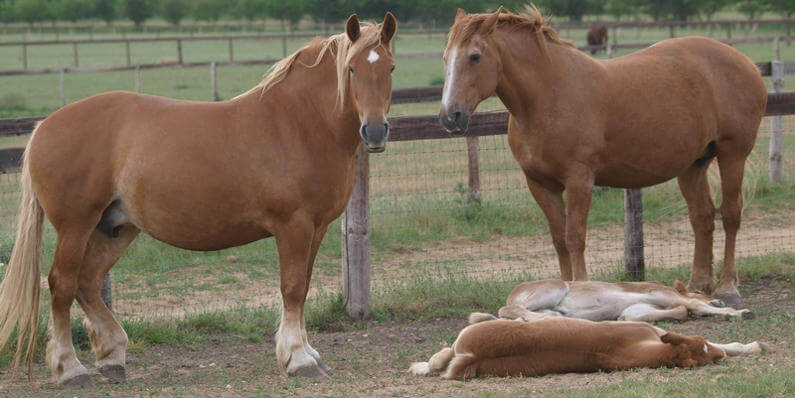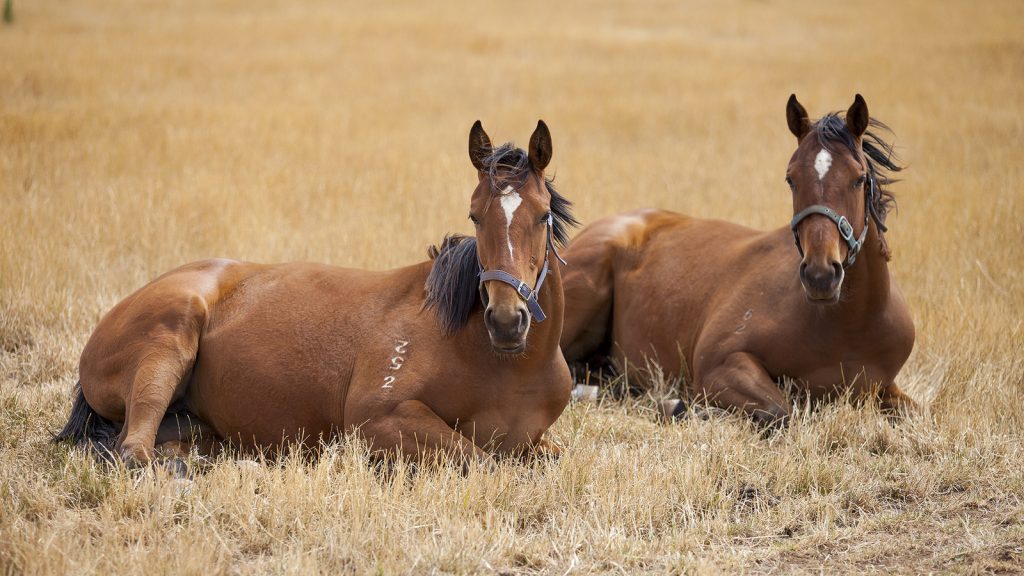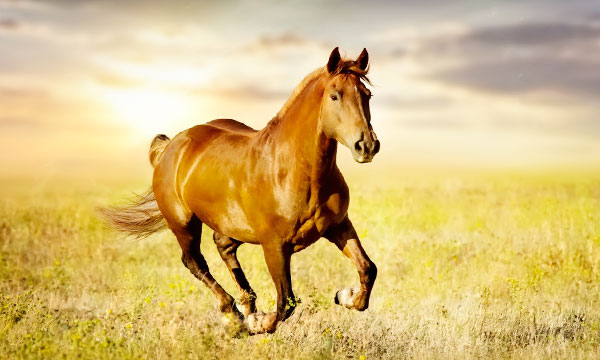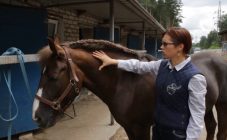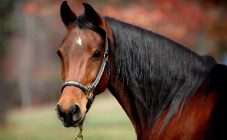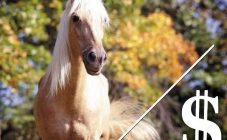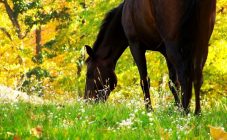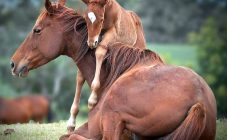Do horses sleep? For a long time this question haunted people who were in love with this graceful animal. And this is not without reason, because not many people managed to see a recumbent horse in a deep sleep. The question logically arises: "How do horses sleep: standing or lying?"
The opinions of scientists, who have been observing them for a long time, settled on the fact that the horses are sleeping, but in different ways. A person needs 7-8 hours to fully recover strength and energy. Equid-hoofed animals rest much longer: up to 6-15 hours. But their dream is completely different.
The owners of the horses repeatedly had to watch how they stood for a long time with their eyes closed, flinching at the slightest noise and brushing off insects with their tail. In this position and condition, they can be for several hours. But this is not a dream - this is a rest in half-asleep. Their full deep sleep lasts from two to four hours.
Resting horses
It is very rare to see an animal lying serenely on its side or in another position in a state of sound sleep. The reason for this behavior is due to the fact that in the past, horses were wild and lived according to the laws of the wild: either a predator or a mammal were fed or saved by their legs. Therefore, you need to constantly be on the lookout so as not to become a victim of wolves or other "lovers" of horse meat.
The instinct still makes the horses in the camps gather in a herd and rest there, surrounded by their relatives. Some watch and guard sleep, the rest, standing or lying down, rest. So in turn they guard each other's sleep. Moreover, the pose in which stallions and mares rest is on legs bent at the joints. The head is half-down. The guards at this time are awake, standing. They stay in this position until they sense danger and warn the herd about it with their neighing.
Dozing sleep on your feet
How do horses sleep, standing on their feet for a long time, and do not get tired? Zoologists have already studied and explained this mystery of nature. On average, an adult weighs four hundred kilograms. The legs and hooves of animals are under such weight of the body both while walking or running, and while sleeping. Why don't they get tired and withstand such a load?
Nature has ordered that in a standing state, horses evenly distribute their weight on all four legs, the ligaments in the knee joints are clamped and allow them not to feel this load. In addition, they relax all muscles and slightly flex the lower back. Horse hooves are designed in such a way that the frog (or connective tissue, which has a soft base, cushioning points when walking and running and distributing the load on the hooves) takes over the entire body weight. So horses in the course of the evolutionary process were able to learn how to rest, and graze, and save their lives.
Sleep on your side
Horses have a deep sleep phase when they can relax and fall asleep while lying on their side. So deep that in a dream they begin to snore, like a person, jerking their legs or head. During these 3-4 hours, horsepower is fully restored. But they can afford such a vacation only if they do not feel any threat from the outside.
The situation is different with foals.When surrounded by adult horses and in the presence of their mother, they feel safe, can lie on the grass and sleep carefree. The sense of security gives them the opportunity to rest as long as they want. They can be seen more often than adult mares and stallions sleeping on their side.
Horse dreams
Sometimes horse breeders pay attention to the fact that their pets hardly sleep in the stall, lying down. This can be seen at the stud farm, when you quietly walk between the stalls, or stalls. There the stallions stand with their eyes closed, their ears and eyelashes twitching slightly. So they relax and doze. If the stall is dry and spacious so that you can lie down and get up freely, the animal will feel comfortable. But when the horse is alone in the stable, it feels the discomfort of being alone. It is enough for him to be in the fresh air or in a herd in the pasture, surrounded by other horses. This will help improve the sleep of the animal.
One more question worries lovers of these handsome men: "Do they see dreams?" Judging by their behavior, when they fall asleep soundly and deeply, dreams come to them. Horses either shudder in their sleep, then "run away", then snort or quietly laugh. Sometimes they can snore, but this is a purely physiological property: snoring appears under the pressure of the body on the lungs. Scientists speculate that horses have colored dreams because their vision is colored.
Sleep is essential for any living being. What for? Resting in a dream, we restore strength, we get an additional charge of energy to continue life. In animals, like in humans, sleep comes when the body requires rest. But everyone sleeps in different ways: people - lying in bed, dogs and cats, as well as all representatives of their species rest, curled up in a ball, and horses spend most of the day on their feet half asleep.
What a delight the circus riders cause, riding, sitting or standing on a horse! No less joy is experienced by every owner of a wonderful horse, performing at the races. Even communication with a simple hard worker, a horse who plows the land and carries water to the village, arouses respect and awe for him.
